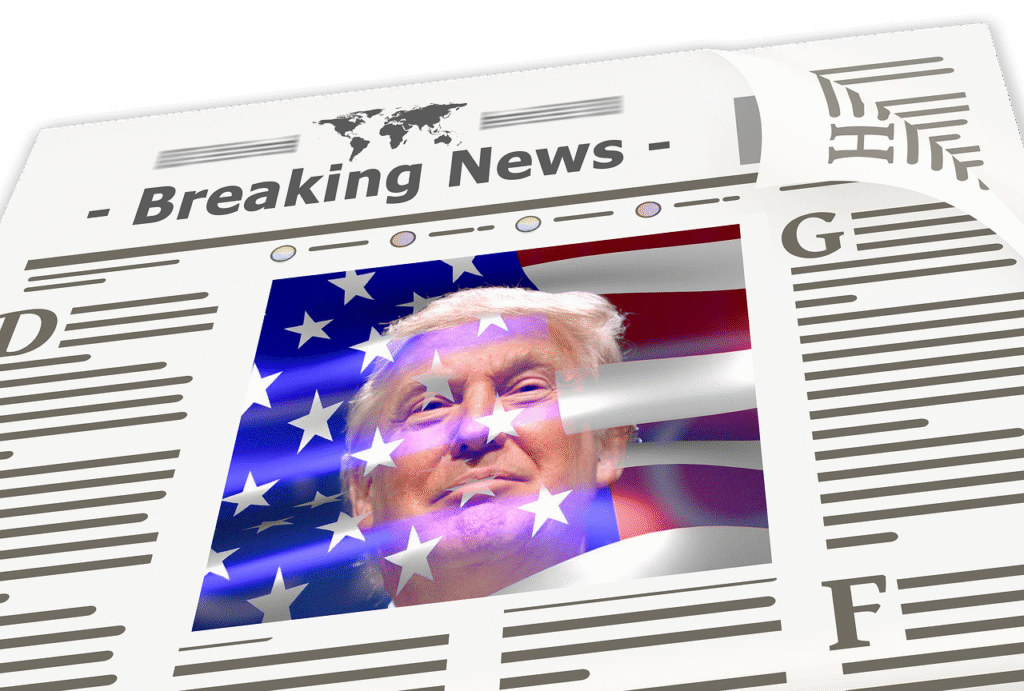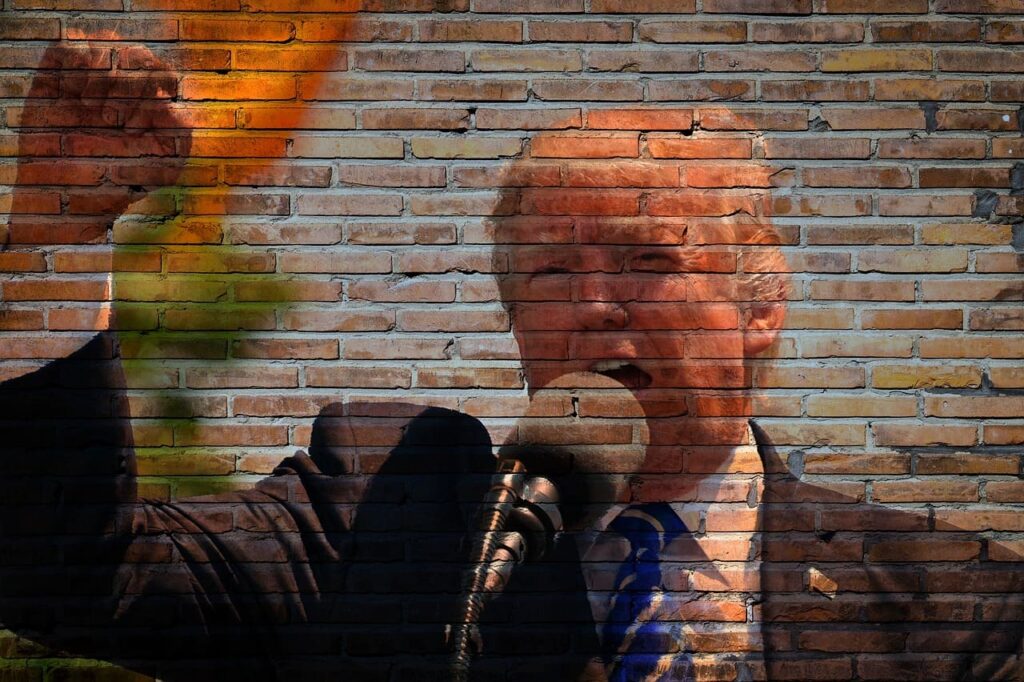Donald John Trump is the most public and controversial face of modern American life. Known for his business ventures, reality television fame, and tumultuous political existence, Trump’s own story is a nuanced narrative of ambition, media savvy, and polarizing leadership that has left a permanent imprint on America and the globe.
Early Life and Background
Donald Trump was born on June 14, 1946, in New York City’s Queens borough. He was the fourth of five children of Fred Trump and Mary Anne MacLeod Trump. Donald’s father, Fred Trump, was a successful real estate developer who built and owned middle-income buildings in New York City, which gave Donald an initial flavor of the world of business and real estate.
Born into a wealthy family, Trump attended the Kew-Forest School in Queens but, after acquiring behavioral issues, was sent to the New York Military Academy, a private boarding school. The military academy helped instill discipline and leadership traits that would later define his business and political attitude.
Donald went on to study at Fordham University for two years before he moved to the Wharton School at the University of Pennsylvania, one of the country’s most prominent business schools. Donald earned his Bachelor of Science in economics, with a real estate concentration, in 1968. This formal education was the foundation of his future entrepreneurial activities in the real estate development industry.
Business Career: Building a Brand
Trump joined his father’s real estate company, Elizabeth Trump & Son, after he went to college. Trump absorbed the business in the early 1970s and rechristened it The Trump Organization. Trump’s early endeavors included rehabbing and operating working-class rental buildings in New York City, but he soon focused on much bigger and more prominent projects.
Trump gained notoriety for flamboyant, high-profile developments such as the transformation of the Commodore Hotel into the Grand Hyatt in Manhattan and the construction of Trump Tower on Fifth Avenue, finished in 1983. Trump Tower, a 58-story skyscraper containing luxury apartments and office space, was his first experience as a New York real estate magnate.
In the 1980s and 1990s, Trump constructed his fortune, investing in casinos in Atlantic City, upscale hotels, golf courses, and other properties in the United States and overseas. He was a celebrity businessman, known for his brash demeanor, confidence, and self-promotion.
His public persona was that of a bigger-than-life businessman who lived for deal-making and taking risks. Trump was frequently in the news, not only for his business achievements but also for scandals and financial woes, such as several bankruptcies involving his casino operations.
Media and Reality TV Stardom
Apart from real estate, Trump entered the entertainment industry. His peak in popularity was with The Apprentice reality television series when it was first aired on NBC in 2004. The show had contestants competing against one another for business-related challenges, and Trump played the role of the ultimate decision-maker who would “fire” people every week.
The Apprentice was a massive hit and introduced Trump to millions of Americans as a tough, no-nonsense businessman. The show’s catchphrase, “You’re fired!” became iconic. This television success helped Trump cultivate a brand as a savvy and decisive leader, further increasing his fame and influence.
In addition to television, Trump also appeared in movies, authored several books like The Art of the Deal, and placed his name on products and real estate ventures overseas. The merchandising expertise he had, both in himself and his brand, was a key element of his rise to celebrity.
Political Ambitions and the Road to the Presidency
Donald Trump courted politics for decades. Throughout his life, he publicly discussed running for president several times but never formally entered a campaign until 2015. Trump announced in 2015 a campaign for the Republican nomination for the 2016 U.S. presidential election.
His campaign was not your usual political campaign. Trump’s oratory was plain, very blunt, and sometimes inflammatory. He positioned himself as an outsider to politics, seeking to attract those disillusioned voters who felt tired of the political establishment. His catchphrases like “Make America Great Again” resonated with Americans who were economically left behind or had their hopes dashed by government failure.
Trump’s agenda was focused on policies such as immigration reform, trade agreement renegotiation, tax cuts, deregulation, and strengthening the U.S. military. Trump promised to bring back jobs, most notably manufacturing jobs, and put “America First” into global policy-making.
Despite numerous controversies, including inflammatory comments towards minorities and immigrants, Trump won the Republican nomination. His campaign was also fueled by a massive social media following and rallies that attracted enormous, raucous crowds.
Presidency: Achievements, Challenges, and Controversies
Donald Trump was elected as the 45th President of the United States in November 2016, defeating Democratic candidate Hillary Clinton in a surprise and contentious election result. It was under his presidency, January 2017-January 2021, that there were record fluctuations in U.S. domestic as well as foreign policies, and extreme political polarization.
Major Accomplishments and Policies
Economic Growth and Tax Reform: Trump advocated for substantial tax cuts with the Tax Cuts and Jobs Act of 2017 in an attempt to stimulate economic growth and business investment. The US economy saw strong growth during the first three years of Trump’s presidency, posting low levels of unemployment.
Judicial Appointments: Trump appointed three Supreme Court Justices Neil Gorsuch, Brett Kavanaugh, and Amy Coney Barrett reshaping the judiciary with a conservative slant that will be experienced in American law for decades.
Deregulation
His administration dismantled numerous regulations across industries, particularly in environmental protections and finance regulation, in an attempt to reduce government interference in business.
Trade Policies
Trump adopted a protectionist policy, renegotiating trade deals such as replacing NAFTA with the USMCA (United States-Mexico-Canada Agreement) and imposing tariffs on Chinese imports to rebalance trade.
Foreign Policy
Trump adopted an “America First” policy, exiting global treaties such as the Paris Climate Accord and the Iran nuclear deal, and negotiating directly with North Korean leader Kim Jong-un.
Controversies and Criticism

Immigration
Trump’s stringent immigration policies like the travel ban on several Muslim-majority countries and the family separation policy along the border with Mexico set off mass protests and court cases.
Relationship with the Media
Trump regularly berated mainstream media as “fake news” and used social media sites like Twitter to circumvent traditional media outlets, routinely igniting debate with his tweets.
Impeachments
Trump was impeached by the House of Representatives twice first in 2019 for those charges related to Ukraine and again in 2021 for inciting insurrection after the January 6 Capitol attack. He was acquitted by the Senate both times.
COVID-19 Pandemic
The COVID-19 pandemic response under the Trump administration was criticized, for example, for downplaying the severity of the virus and muddying public health guidelines.
2020 Election and Aftermath
Trump lost the 2020 presidential election to Joe Biden and contested the election result, claiming widespread voter fraud with little evidence. His denial of defeat and role in the January 6, 2021, Capitol insurrection led to a historic second impeachment.
Post-Presidency and Continuing Influence
After leaving the White House in January 2021, Donald Trump was still a highly influential personality in the Republican Party and the United States’ politics. He continued to go to rallies, support politicians, and have a very active base of supporters. Trump spoke about the potential of becoming a presidential candidate again in future elections, keeping the political spotlight on himself.
Post-professional life has been marked by ongoing explorations of his politics and business tactics. Despite this, he remains a central figure in national conversations regarding the future of the GOP and American democracy.
Legacy: A Polarizing Figure
Donald J. Trump’s record is one of sharp contrasts. To his political support base, he is a transformative leader who shook up entrenched political players, stimulated the economy, and made American sovereignty a priority. To his political adversaries, he is a polarizing leader whose words and actions stoked social fissures and undermined democratic standards.
Regardless of the perspective, Trump’s impact on American politics cannot be overstated. He reconfigured how politicians communicate to the masses, demonstrated the political power of celebrity, and illuminated the profound fault lines throughout American society.
Summary
From his modest beginnings as a real estate scion to reality TV star and subsequently to the highest office in the world, Donald J. Trump’s life is extraordinary. It is a unique blend of ambition, turmoil, and authority that continues to shape the United States of America today. Coming to an understanding of Trump means entering into the realms of modern American politics and culture an undertaking as challenging as it is imperative.
Read Our Recent News:
Google Faces $314 Million Fine for Unauthorized Collection of Android User Data
China Urges Nepal to Lower Upper Mustang Entry Fee to Boost Tourism
